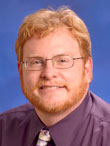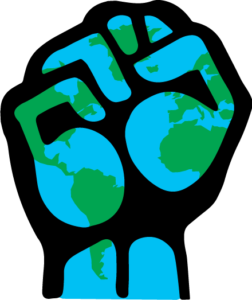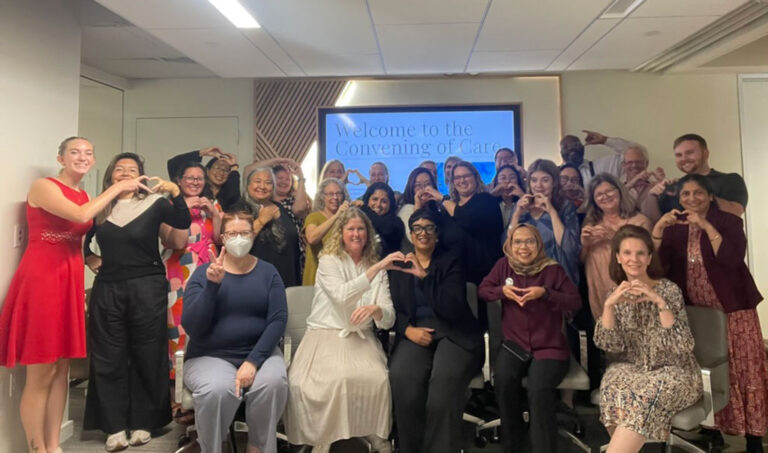Time for a Radical Geographic Literacy in Trump America

Like many geographers, I have a world map hanging in my office. Last time I looked, I didn’t see any “shitholes” on that map. It does not come easy for me to begin my commentary with an expletive (and I apologize to those who I offend), but our current U.S. President really leaves me no choice. I am sure many of you know of the strong allegations that Mr. Donald Trump—frustrated with a bipartisan immigration proposal—argued that America needs more immigrants from places like Norway and fewer from Haiti, El Salvador and African nations, which the President reportedly called “shithole countries.”
More than mere “locker room cartography,” as one late night comic put it, the President’s harmful words project a racialized map of the world that represents Haitians, Salvadorians, and Africans not only as unwelcomed, but also as inferior. By reducing countries and an entire continent to a pejorative label, Mr. Trump denies the complexity, dignity, and richness of life in these countries and the creative resilience and resistant survivability that have always existed amid and in opposition to political oppression and poverty.

Mr. Trump’s “shithole” remark also works to erases, quite likely by design, a consideration of socio-spatial processes and difficult decisions that make migration necessary for many people, along with the very real contributions that immigrants from these denigrated nations have brought (and continue to bring) to the United States. Also obfuscated in the President’s unjust words is America’s own historical and ongoing complicity in destabilizing the governments and economies of some of these derided countries.
As a global leader and the head of a diverse nation, the President had the responsibility to create and communicate a much more informed and inclusive rendering of the world—regrettably, it appears that he chose not to do so.
There is no shortage of organizations, journalists, and individual citizens condemning Trump’s words as vulgar, racist, and unbecoming of the nation’s highest elected leader. I share in their outrage and feel strongly that the President’s remarks—and the ideology that underlies them—strike at the heart of who and what we are as geographers. His maligning of certain parts of the world runs directly contrary to our Association’s core values regarding scientific knowledge, international collaboration, support for developing regions, human rights, and anti-racism.
Before going any further, I want to be clear that this column, like all of my monthly columns, reflects my opinions and mine alone. They do not represent an official stand or position taken by the American Association of Geographers (AAG). At the same time, the AAG can and does encourage its members to speak out to express their own individual opinions about social and policy issues important to them as geographers.
The President’s recent language and policies regarding immigration are open to question on a variety of economic, diplomatic, and social justice grounds. I wish to focus here on the damage potentially done to the “geographical ethics” that we try to create within our classrooms and communities, specifically the intellectual and moral obligation to develop a sophisticated global understanding, to represent the world in just terms, to care about and develop an empathy for others—as much as that is illusive.
Regrettably, Mr. Trump’s “shithole” reference is not an isolated event, but part of a pattern of regularly degrading people and places as part of the process of governing—whether he is offering defamatory portrayals of people from Mexico, African American communities, or those living in certain Muslim nations.
I encourage members of the AAG to consider what this national ethical crisis means for our discipline—especially in terms of raising the already high stakes of geographic education—and I suggest that now is the time for articulating and promoting a “radical geographic literacy” among a public bombarded with harmful images from the White House.
The High Stakes of Geographic Education, Especially Now
When Mr. Trump uses his bully pulpit to portray an entire country as the equivalent of a toilet, he is single handedly damaging what many of us have spent our careers trying to achieve in the classroom. The full damage comes not from a single comment in a single moment, but in how that remark perpetuates a long history of nativism and white supremacy within the United States while also reinforcing centuries old negative tropes about the Global South. In this regard, we cannot dismiss the President’s words as simply political incorrectness or “Trump just being Trump”—they are part a larger historical and contemporary geography of racial injustice.
The President’s stigmatizing of Haiti, El Salvador, and African countries—and the unwillingness of some elected officials to condemn these actions—threaten not only the global outlook and values of our students, but also potentially the very safety of some of these students and other community members. I join other geographers in being gravely concerned about the wider toxic effect that the ‘shithole” controversy will have on patterns of prejudice, public treatment of targeted immigrant groups, the sense of belonging of people of color in general.
While the President has been criticized (and rightly so) by the media and teachers, the truth is that his offensive comments join a tradition among journalists and even some educators of framing African people and places largely in terms of disaster without carrying out a full and responsible historical and geographic analysis and depiction of the region. Indeed, several months before the President’s infamous “shithole” reference, a number of my colleagues who grade AP Human Geography exams contacted me. They expressed outrage this past year in finding high school student AP essays containing damaging stereotypes about Africa along with clear elements of racism, sexism, and classism. There were also concerns from my colleagues about some of the Eurocentric assumptions written into the AP exam questions and grading rubrics.
If the goal of geographic educators are, according to John Finn, to wage a “ruthless” critique of the taken for granted ways we order and fix the meaning of the world, then our job has always been a tough one and I would argue that it has gotten even tougher in the Trump era. This challenge from the White House, while clearly indicating the need for increased advocacy for geographic education, comes at a difficult time in the discipline. While not discounting significant national and international strides made in educational standards, research, and programs in geography, much of it led by the AAG, and the ever growing pedagogical importance of GIScience, the view seen by some geographers is not so rosy.
We are in a time in which some states are cutting or diluting geography within public school curriculum—a baffling decision given the international challenges and uncertainties facing us. And the National Geographic Network of State Alliances—who for thirty years was the “boots on the ground’ in the battle to train teachers and lobby for geography with state legislatures—learned in 2017 that the university-state alliance model will be de-funded by National Geographic Education for a new, and still not clearly outlined regional model of support. Coordinators of some state alliances are quite certain their offices will close—eliminating important allies in the promotion of geographic education at a most critical time.
The dramatic restructuring of the Alliance Movement, the curriculum challenges facing educators and the recent ethical challenges that I have described suggest that the stakes are especially high for a discipline-wide reinvestment in geographic education and championing what I call a “radical geographic literacy.”
Toward a Radical Geographic Literacy
I choose the word “radical” to characterize geographic literacy for two reasons. First, radical signals a profound change and I am calling for a significant discipline-wide elevation and intensification of geographic education-related outreach and advocacy. The radical approach proselytizes the educational and political necessity of having a broad comprehension and appreciation of the world’s complexity and diversity as a means of countering ongoing national efforts to deny that reality. This enhanced promotion of geographic literacy has always been important, especially given the continuing abysmal base of geographic knowledge among Americans, but particularly needed now when our President, a self-identified “stable genius,” appears unable or unwilling to articulate even the most basic understanding of the world mosaic.
To some degree, this radicalism requires geographers to keep doing what they do well, which is offer critical and accessible learning about the world and how it looks, feels, and works in actuality rather than in political rhetoric. Yet, effective teaching may not be enough. Geographers of all sub-fields should consider additional places where they can push back against unethical portrayals of the world and its people. That could be lobbying for curriculum change, designing lessons, training teachers, attending educational conferences, publishing in pedagogical journals, consulting with colleges of education, participating in community teach-ins, visiting K-12 classrooms, or collaborating, while you can, with your state geographic alliance. This radical mode of advocacy is, in my view, a responsibility of all geographers and not solely the job of those who conduct research in the theories of methods of geographic education.
Second, I use “radical” geographic literacy in a deeper way, recognizing the word’s association with revolutionary change. I believe it is time to redefine, for the public and our profession, what we fundamentally mean by and represent as geographic literacy, while also actively considering what role a revamped version of the concept can and should play in advancing a geographical ethics seemingly missing from the Oval Office.
Geographic literacy is not something that I hear many of my fellow faculty members talk about, perhaps because the public, media, and even some geographers identify it with the rote learning of the names and locations of human and physical features on the earth. There are broader and more useful conceptions of literacy. For example, Geography for Life: National Geography Standards (2nd edition) emphasizes the analytical perspectives, content knowledge, and applied skills needed to be a geographically informed person. Within the “In Brief” version of these standards, what is distributed widely to schools and teachers, geographic literacy is defined as being critical to “economic competiveness,” “quality of life,” “sustaining the environment,” and “national security.”
Absent, at least prominently, within standard definitions of geographic literacy is the relationship between geographic education and the promotion of peace, social and environmental justice, and anti-discrimination—the very matters that seem to matter the most at this historical juncture. Importantly and rigtly, Geography for Life suggests that a geographic education enables students to “engage in ethical action with regard to self, other people, other species, and Earth’s diverse cultures and natural environments,” but it stops short of identifying ethical geographical awareness and action as one of the discipline’s core or essential elements and competencies. At best, it would be subsumed under “the uses of geography.”
Strikingly, Geography for Life suggests that geography can assist in protecting the US economy and its position in defense and international relations (a point that I don’t necessarily disagree with), but it does not appear to say nearly as much about extending that concern and responsibility to a worldwide scale or the efficacy of geographic literacy in promoting international cooperation. Drawing from the writings of Barney Warf, an alternative, radical definition of geographic literacy would be more explicit in creating moments to challenge the privileging of that national order. Such a literacy would be key to “widen[ing] geographical imaginations and circles of compassion, to illustrate how students’ lives are connected to distant others, and to inject issues of empathy and caring into geographic pedagogy.”
In contrast to traditional definitions of geographic literacy, which tend to focus largely on the ability of students to process and apply geographic information, a radical version of geographic competence considers more centrally the affective and emotional aspects of developing a basic but critical knowledge of the world. Again, reading from Warf, such an approach promises to “call attention to students’ positionality, highlight their prejudices, and to make explicit the cultural filters with which they perceive those different from themselves, and thus equip them with tools to negotiate the complex terrain of social difference in meaningful and constructive ways.”
It is this very sort of reflexive engagement with values and attitudes, as part of basic geographic literacy, which is necessary for being sensitive to and standing in solidarity with the differences and legitimacies of other countries—something grossly missing from a Trump worldview. Importantly, a radical geographic literacy does not abandon the need for foundational content and skill development, but it realizes that these geographical competencies are incomplete if not leveraged to examine, critique, and challenge inequalities—including dehumanizing portrayals of countries and regions. Importantly, this radical geographic literacy is not restricted to our colleagues in critical human geography; it can and should be part of the pedagogical DNA of our whole discipline.
Many of you already engage in and advocate for radical geographic teaching, learning, and outreach, but it is time to institutionalize these values within the promotional materials distributed to K-12 schools, universities, and public groups, the learning objectives of our introductory courses, the way we introduce ourselves to strangers, and national geography definitions and curriculum standards. Perhaps a new edition of Geography for Life is in order. Please share your ideas of how to develop and carry out a radical geographic literacy and your thoughts and experiences on the geographic ethics at work (or not) in Trump America by emailing me (dalderma [at] utk [dot] edu) or share on Twitter #PresidentAAG.
— Derek Alderman @MLKStreet
Professor Geography, University of Tennessee
President, American Association of Geographers
DOI: 10.14433/2017.0026


